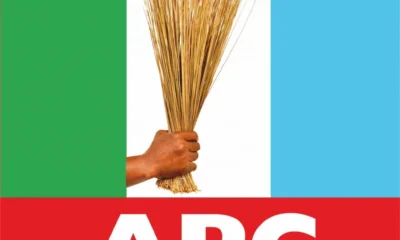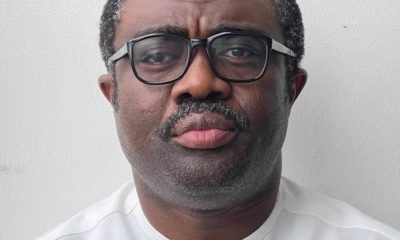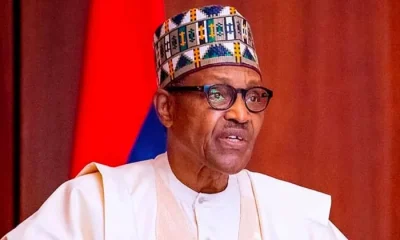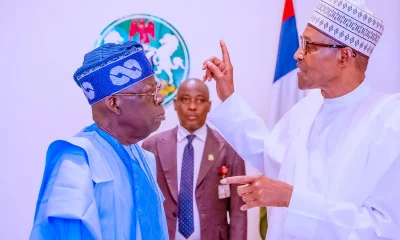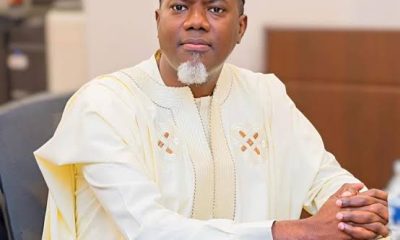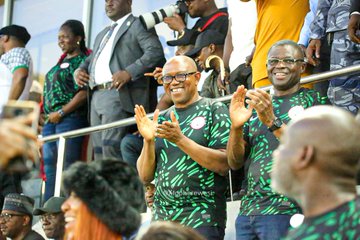Opinion
ANAP Foundation Explains How Obi Widened Lead Over Tinubu, Atiku In New Opinion Poll
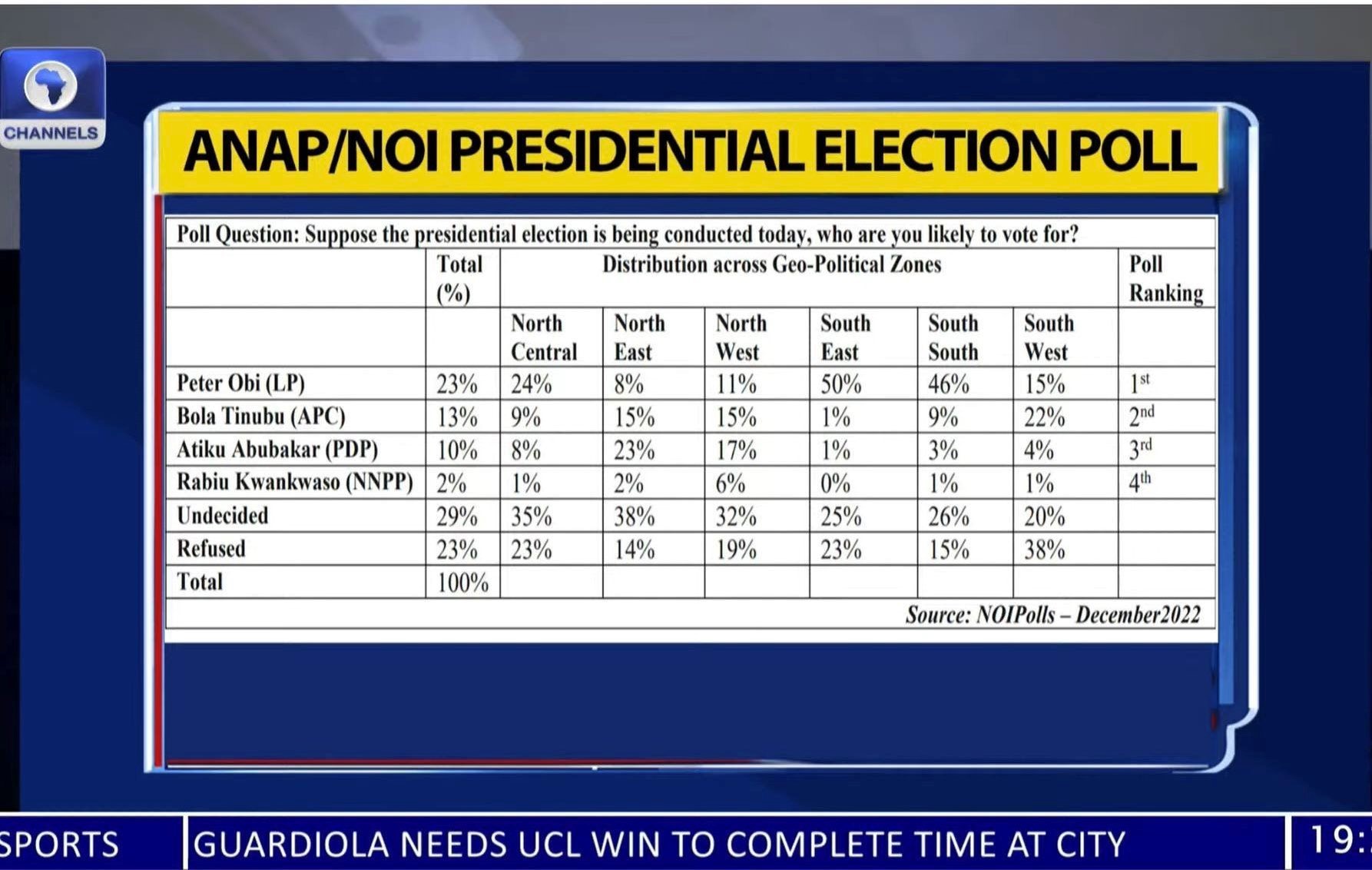
ANAP Foundation has outlined the metrics that brought forward Labour Party presidential candidate, Peter Obi as the leading candidate in its latest opinion poll conducted in December.
GWG.ng had reported that Obi led Bola Tinubu of the APC, Atiku Abubakar of the PDP and Rabiu Kwakwanso of the NNPP with 23%, 13%, 10% and 2% respectively.
The poll conducted on behalf of ANAP foundation by NOI Polls followed a similar poll in September that showed Obi leading with 21% and Tinubu and Atiku at 13%
Explaining the outcome of the Opinion Poll and how Obi in a statement late on Wednesday, president of ANAP Foundation, Atedo Peterside said:
Ahead of the forthcoming 2023 Presidential elections, a recent nationwide opinion poll commissioned by Anap Foundation and conducted by NOI Polls Limited was concluded in early December 2022. The Poll revealed a significant lead by Mr. Peter Obi of the Labour Party (LP), with Asiwaju Bola Ahmed Tinubu of the All Progressives Congress (APC) and Alhaji Atiku Abubakar of the People’s Democratic Party (PDP) both trailing him. Dr. Rabiu Kwankwaso of the New Nigeria Peoples Party (NNPP) emerged as the lone outsider.
The results showed a significant lead for Mr. Peter Obi with 23% of voters proposing to vote for him if the presidential election were to be conducted today; and 13% proposing to vote for Asiwaju Bola Ahmed Tinubu who fell in second place. Alhaji Abubakar Atiku was third with 10% and Dr. Rabiu Kwankwaso was a distant fourth with 2% of voters proposing to vote for him.
Mr. Peter Obi’s 10%-point lead at this stage is significant, but not sufficient to separate him from a leading pack of candidates scoring 13%, 10% and 2%.
Undecided voters and those who prefer not to reveal their preferred candidate add up to a whopping 29% and 23% respectively. The gender split of undecided voters shows that 38% of women are undecided versus 21% of male voters.
Poll Question: Suppose the presidential election is being conducted today, who are you likely to vote for?
The percentage of registered voters and/or voters with their permanent voter’s card is as follows in each of the zones – 90% in the North East, 89% in the South West and 88% in the South South. The lowest voter registration percentages were recorded in the North Central with 87%, North West with 86% and the South East with 84%.
he chart below captures the overall position of the four (4) leading Presidential candidates by aggregating and weighing their scores in proportion to population totals across Nigeria based on the findings of our September and December 2022 polls. The percentage of voters refusing to disclose the name of their preferred candidate has increased sharply from 15% to 23% making it difficult for us to ascertain if any of the candidates has picked up significant momentum between September and December 2023.
When asked if religion would affect the choice of respondents, data gathered showed that 15% of the respondents replied in the affirmative to religion influencing their choice of candidates but 81% on the other hand, responded that their choices were not being influenced by religion; in the same vein, 10% responded in the affirmative to ethnicity affecting their choice of candidates while 86% responded that their choices were not influenced by ethnicity.
Furthermore, the data summarizes the top five reasons why voters are more inclined to vote in the forthcoming elections, these include: – The need to tackle insecurity (35%), Economy (26%), Unemployment (10%), Poverty alleviation (7%) and Education (6%).
71% of the respondents think the Presidential candidates should compulsorily participate in a televised debate and/or town hall meeting, with the debates/town hall meetings spanning across topics like their manifestos, competence checks, and personality recognition amongst others.
It is worthy of note that 73% of those aged 18-25, 82% of those aged 26-35, 85% of those aged 36-45, 86% of those aged 46-60 and 82% of those aged 61+ responded that they would definitely vote in the coming elections. The age groups that expressed the greatest willingness to vote were those between 36-45 and 46-60 years.
The Poll shows that almost 8 in 10 registered voters are absolutely certain that they would be voting in the next presidential election. If they stay committed then we could witness a huge turnout in the February Presidential 2023 elections.
Significance Of The ANAP Opinion Poll On Obi and Other Candidates
While this Poll result shows some significant trends, it is key to note that the battle ahead lies in the hands of the undecided/swing voters as they would ultimately decide which candidate takes the lead to emerge as the President of the Federal Republic of Nigeria in the 2023 presidential elections.
This result was polled from 1,000 respondents; after which Anap Foundation conducted similar polls with a 2,000 and 3,000 respondents sample size, the difference in the results was not significant.
The high percentage of voters (38%) who refused to disclose their preferred candidate in the South West Zone is worrisome. For other zones, those who refused to disclose their preferred candidate ranged from 14-23%. At 38%, the South West figure is an outlier. Historically, an exceedingly high percentage of voters refusing to disclose their preferred candidate is usually associated with perceptions/fears (real or imagined) of possible voter intimidation within a geographical area.
In summary, our December 2022 Polls are inconclusive in terms of establishing a clear winner as the undecided voters, combined with the voters who refused to disclose their preferences, are enough to turn the tables.
However, Anap Foundation has concluded that the trends are clear enough to establish the front-runners and so our subsequent polls will continue to concentrate on the 4 leading candidates only.
Send Us A Press Statement Advertise With Us Contact Us
And For More Nigerian News Visit GWG.NG


